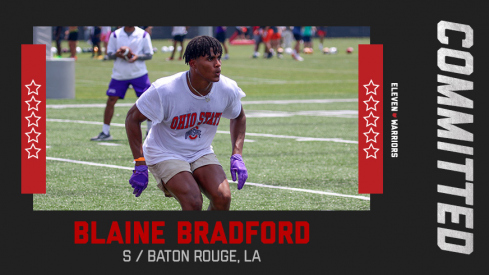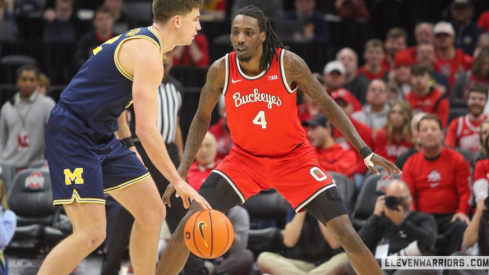There is no shortage of opinions on "The Assassin" Jack Tatum in the wake of his passing. Most of them are laudatory and rightfully so, but there is
dissent among the more predictable sources of antipathy. Much the same happens anytime someone remotely famous dies, often for only the pettiest of reasons. Our passions sometimes get the better of us, in sport and otherwise, and we end up cursing the existence of human beings we hardly know. For the record, Tatum tried to apologize on numerous occasions to the man he accidentally paralyzed, as well as his family, but they would have none of it, feeling it would be a publicity stunt. Most of this song-and-dance is before my time, so I won't bother to pass an opinion on it. This is not a post about Tatum's personal demons anyway.
Tatum leaves behind him the legacy of anyone who was ever the center of a controversy; many love him, some hate him, and still others shirk the personal aspect and try to measure the man's influence on the game he played.
Other than perhaps Chris Spielman, Tatum might be the quintessential Buckeye defender. A tough, hard-nosed safety with a knack for the timely big hit, Tatum was an immediate team leader as one of the Super Sophomores who guided Ohio State to the 1968 National Title. A three-time All-Big Ten selection, Tatum left Ohio State as a first round pick and went on to a ten-year NFL career, most of which was spent with the Oakland Raiders. Coach Tressel even instituted a Hit Of The Week Award in his honor.
What made The Assassin special was that he was one of the first in a long line of safeties known not necessarily for their coverage ability, but for their ability to deliver the big hit (thought Tatum did snag 37 interceptions in his career). Nevertheless, he wasn't called the "Assassin" because he assaulted a quarterback's QB rating, but because he was the first, or at the very least one of the best known, in a long line of safeties deemed "head hunters". Regrettable name aside, these safeties were feared and respected as big hitters who changed entire offensive gameplans. Tatum, along with more recent players like Ed Reed, Sean Taylor, Brian Dawkins, and Taylor Mays, helped make passing to the middle of the field almost impossible in college and the NFL, and helped lead to the development of pro passing games that focused more on downfield success than short and intermediate gains that could result in the injury of a valued receiver.
But there is another side to this legacy. Though we don't like to talk about them, head injuries are increasingly a problem in NFL circles, now more so than ever in the wake of Chris Henry's untimely death. Henry, as most of you know, was the oft-troubled slot receiver for the Cincinnati Bengals in the mid-2000's, who had no history whatsoever of head injury in his days as Bengal or a West Virginia Mountaineer. Nevertheless, his autopsy revealed something remarkable, and remarkably
disturbing for every person who considers him or herself a football fan:
[Henry] had chronic traumatic encephalopathy (CTE) -- a form of degenerative brain damage caused by multiple hits to the head -- at the time of his death, according to scientists at the Brain Injury Research Institute, a research center affiliated with West Virginia University.
The thing about CTE is that it can only be diagnosed during an autopsy, and it has been found in more than 50 deceased former athletes. This is the incredibly sad side of the game we know and love.
I don't mean to make you feel bad about being a football fan. I know that I won't stop watching football this year, the next year, or any time in the future in protest of this. It's best, for your own sanity, to just not think about it. There are a lot of factors at work here: helmets need to be brought up to speed, the NFL needs to take better care of its former athletes, and both the NCAA and the NFL need to re-evaluate their rules on above-the-chest tackling. Despite what the
vast quantities of
Hit Porn that can be found on Youtube may lead some to believe, this is not a blood sport. It's even tougher to think about the damage playing the sport causes to kids
barely out of high school. Tatum himself was responsible for one such serious injury in his career, and it seemed to fill him with a regret that never ebbed. While I'm sure the afore-linked Michigan fan (who I hope gets violated by pig-monkey men in the woods) and others like him would like nothing more than to cast Tatum as a bad person, there is
plenty of indication that that couldn't be further from the truth:
“I always wanted to hit someone hard,” Jack said. “And if they got hurt, that was just part of the game. But you always wanted them to be okay.”
Tatum's passing has helped renew awareness of his contributions to the game. I personally hope it also renews awareness to the toll this game takes on its players. The way the NFL treats its veterans
is a travesty in its own right, but that's another complaint for another blog. Both the NCAA and the NFL have to re-evaluate the importance they place on preventing head injuries, and treating those who have suffered them in the past. I'm sure The Assassin himself would approve.


